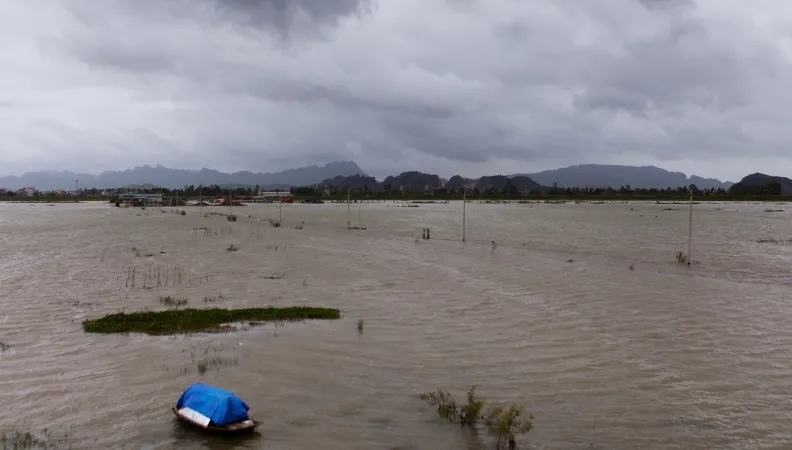Share the page
The Impact of Climate Change on Lives and Livelihoods in Vietnam
Published on

In Vietnam, AFD and the French National Research Institute for Sustainable Development (IRD) are conducting a research program entitled GEMMES Vietnam to assess the socio-economic impacts of climate change in the country. A special report on this program was published on the occasion of COP26 in Glasgow earlier this month. AFD economist and co-author of the report Etienne Espagne, provides details of the work carried out to date.
What types of climate change impacts occurring in Vietnam are discussed in the report?
This report includes climate trajectories for Vietnam projected for 2050 and 2100 and applied to various sectors including agriculture, energy, healthcare, labor productivity, and the ability of businesses to innovate. These assessments are used to feed the GEMMES macroeconomic model developed by AFD.
For example, we have conducted field studies in the Mekong Delta where the people are faced with rising sea levels, progressive soil salinization, and coastal erosion. The Mekong Delta is now sinking by 4 to 5 centimeters per year due to an excessive pumping of water from the water table for agriculture, but also due to the construction of infrastructure related to local economic development.
In addition to this, climate change is causing a rise in sea level of a few millimeters per year and it will be more in the second half of the century. The region is a very agricultural region where rice is already suffering from soil salinization. Farmers therefore tend to prefer more profitable crops, but they also require a lot of fresh water, which decreases groundwater reserves and increases delta subsidence.
See also: Renewed commitments to combat climate change in Vietnam
This report warns that for a 1.5°C increase in temperature compared to pre-industrial times, Vietnam would lose 4.5% of its GDP. For an additional 2°C, this would mean a loss of nearly 7% of GDP. These are median values based on an average of different climate scenarios, which are themselves highly variable.
The report also proposes strategies for better adaptation to climate change in Vietnam.
We suggest ways to limit the impact of each sector analyzed. To do so, we studied the adaptation policies implemented in Vietnam to date, the flow of international and regional financial funds for adaptation, and also the way local populations mobilize funds in response to extreme climate events.
At this stage, we do not yet have a quantified macroeconomic evaluation of adaptation strategies. This is planned for the last year of the project. Before talking about adaptation, it was necessary to assess the impacts of climate change.
How did this report come about?
This GEMMES Vietnam research project is financed by the 2050 Facility, designed to help countries develop trajectories compatible with the Paris Agreement by 2050, and of which AFD is in charge. It was launched in the fall of 2019 and the report itself was envisioned for the summer of 2020 leading up to COP26.
See also: GEMMES, an app for understanding the effects of climate change on the economy
With 60 contributors in total, both Vietnamese and French researchers participated, each unit mobilizing a small research team in close collaboration with the Vietnamese Ministry of the Environment. The macroeconomic model that incorporates all sectoral impacts is the first official version of the GEMMES model for Vietnam which was finalized specifically for this report.
